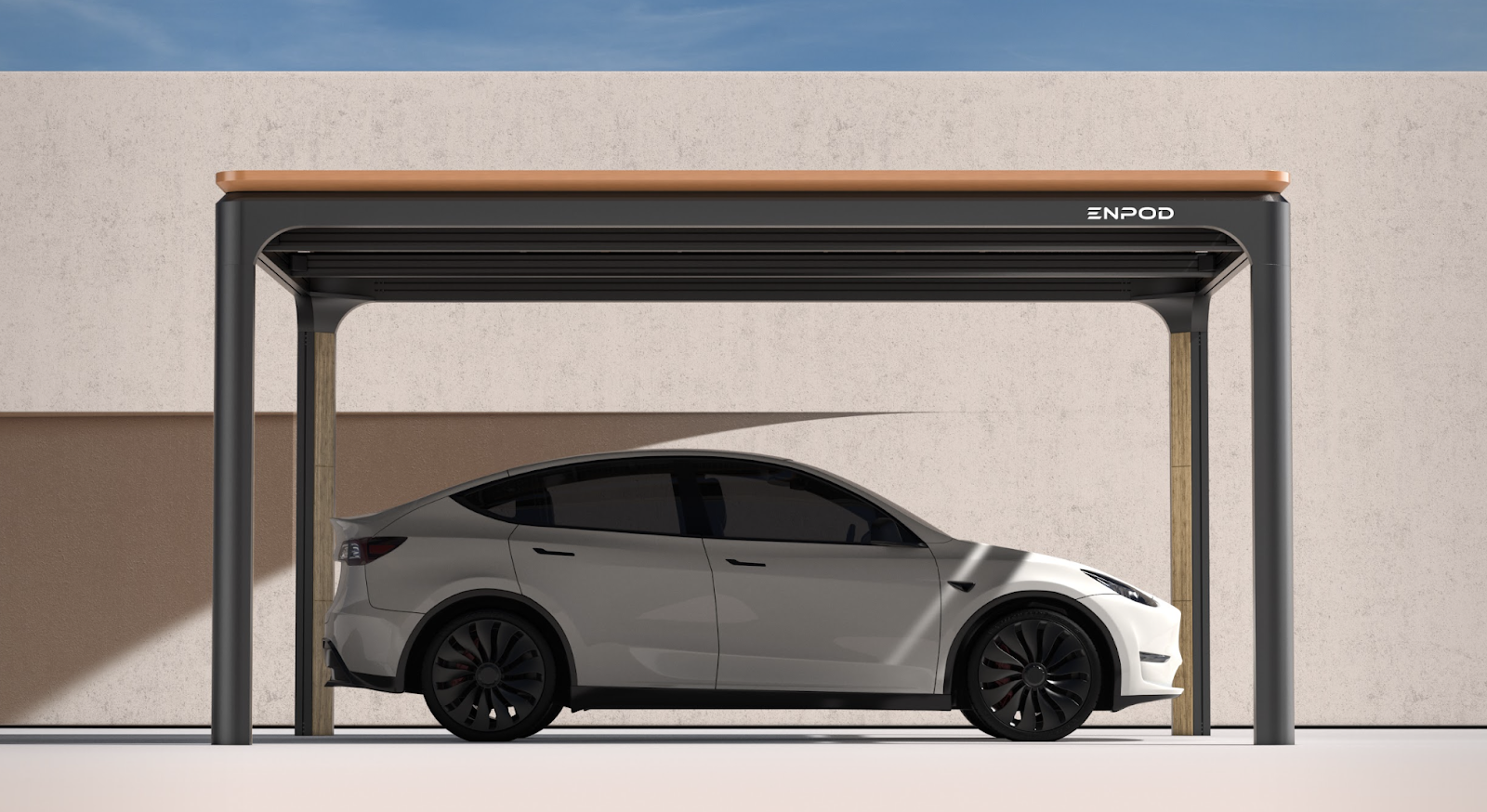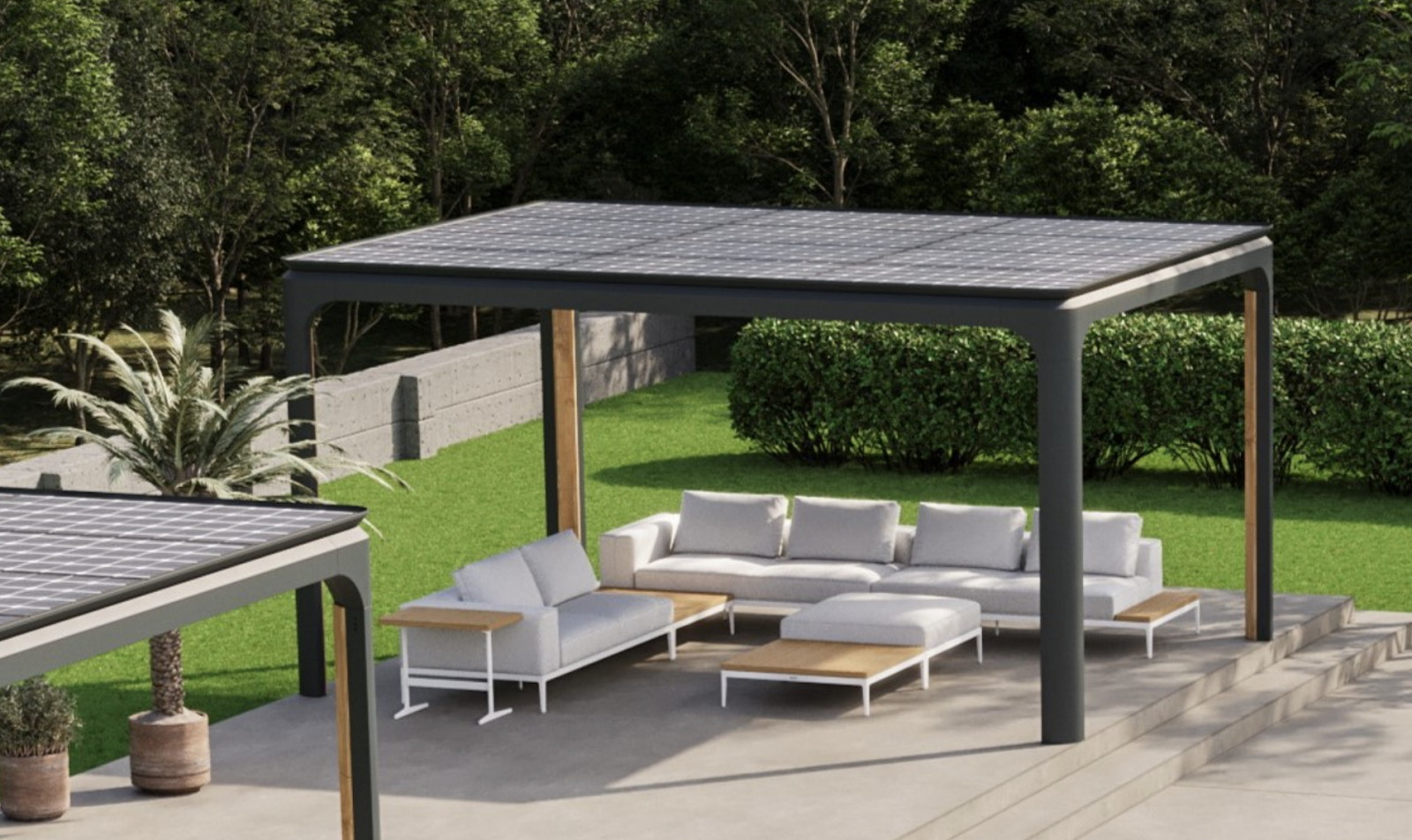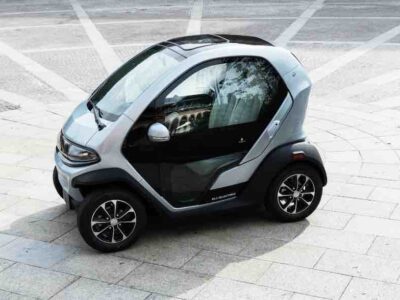Renewable energy and electric vehicle (EV) charging go together like PB&J. Solar power is tapped as one of the leading energy sources for total emission-free charging. While some cars have panels installed in the body, external solar panel systems offer the best output. A Miami-based startup is creating a premier canopy that can charge an EV with entirely solar power.
Pavilion Solar is working on the EnPod, a solar pergola that can serve as a carport or an electrified awning. EnPods are built in the United States, making them eligible for federal clean energy tax credits, saving up to 30% of the costs of qualified photovoltaic technology. The company website says the canopies are made from American-sourced aluminum, can withstand hurricanes, and are easily approved for installation by states with strict building codes — right now, exclusively Texas and Florida.
EnPod can charge multiple EVs while offsetting a home’s carbon footprint. One canopy can save up to 75% on an electricity bill, company reps told The Business Download in an email.
“Since we are initially focused on Florida residential, given the average expected output of one EnPod and the average monthly energy consumption of the average home in Florida, the savings would be about $100/mo with one EnPod and $200/mo with two EnPods,” the company explained. “As energy costs continue to rise, these savings also rise proportionally since it is an avoided cost, so if, for instance, a homeowner is saving $1,300/year in the first year, they would be saving $1,600/year in the fifth year assuming a 5% annual utility increase.”

Photo Courtesy Pavilion Solar
They also said they plan to work with major automakers and car dealerships to offer their tech to potential EV buyers. Pavilion Solar already has partnerships with a “major car dealer” in Miami to place EnPods on their lot as a showcase.
Company representatives broke down some of the benefits of solar canopies.
“Solar canopies are, in many ways, a superior alternative to rooftop solar,” the representatives said. “In reality, according to the Department of Energy, half of U.S. homes aren’t eligible for rooftop solar, so despite record demand of homeowners ready to go solar, millions of these homes have very limited options to do so.”
“Solar canopies provide secondary benefits of shade for a vehicle or outdoor entertainment area. They are easier to maintain since you don’t need to get on a roof to access the panels.
You don’t need to penetrate the roof to mount the panels,” they continued. “By the way, some insurance companies are starting to drop or deny coverage to people with solar on their roof, and this is one of the reasons cited by many people who have pre-ordered the EnPods for why they are so excited about our product.”
The Environmental Protection Agency’s greenhouse gas equivalencies calculators say that a single EnPod has an average output of 8.2 MWh. That equals 5.7 metric tons of avoided emissions, around 645 gallons of gasoline, or around 6,300 lbs of coal. That’s enough carbon sequestered to grow 100 trees in 10 years.
EnPods are ideal because they don’t require roof installations. According to Energylink, a solar canopy can protect driveways, walkways, or parking lots from weather damage. It’s also an efficient use of space, especially if the canopy has bifacial panels. Bifacial panels collect light that reflects off the ground. It can generate 25% more electricity with white gravel placed underneath.

Photo Courtesy Pavilion Solar
Another major feature of solar canopies is EV charging integration. A canopy’s efficient space features make it easier to park multiple cars under it and hook them up to a direct renewable power source. Commercially, businesses could generate supplemental income from offering charging with a canopy. As for residential drivers, now they can fit two EVs under the EnPod.
Pavilion Solar was recently named a semifinalist in round seven of the American-Made Solar Prize. The competition is backed by the Department of Energy and the National Renewable Energy Laboratory.
The company was one of 20 startups to progress, taking home $50,000 in cash.
We asked the company what the future holds for them. They told us they received many reservations after opening pre-orders for a few weeks. The business is building strong partnerships with local manufacturers to drive economic growth. They’re also engaging with nonprofits to ensure underprivileged communities reap the benefits of solar canopies.
“Overall, residential solar adoption is not happening nearly as fast as it should, and one of the biggest reasons is that half of U.S. homes can’t have rooftop solar,” the Pavilion Solar representatives said. “We are addressing a huge underserved market that is hungry for energy independence, and by offering a product that looks amazing, is affordable, and resilient, we think we are set to experience massive growth.”





